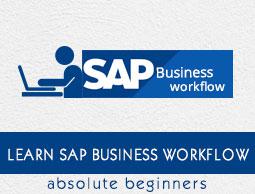SAP Business Workflow - Start & Termination
A workflow can also be started manually, however, it must have possible agents assigned to it. A possible agent is known as the user who is authorized to start a task and to execute a relevant work item. The possible agent of work items are defined in the task definition and without possible agents, you can’t execute or start a task with a dialog.
If the import parameters of a SAP workflow contain data, you can start them manually and it includes workflows with triggering events.
You can use T-codes: "SWUI" and "SWUS" as shown in the following screenshot. In these transactions, you can trigger already defined SAP workflows.
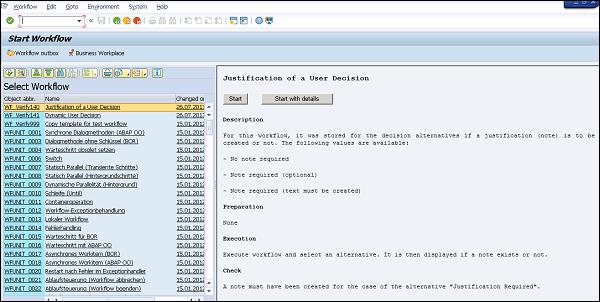
You can select the Workflow from left and use option - Start or Start with Details. On the right side, it shows details about the Workflow. Once you click Start, the next step is to enter the decision step.
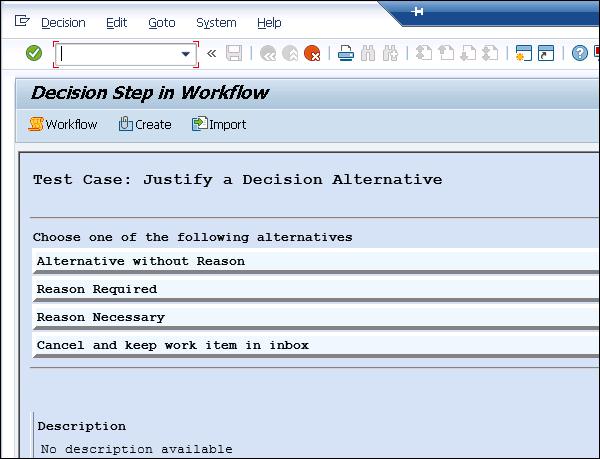
T-code: SWUS (test a Workflow)
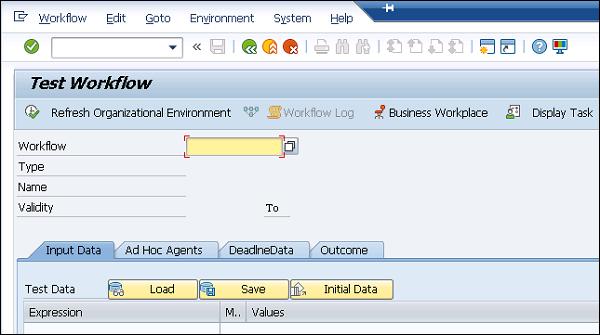
You can navigate to Business Workplace from both the transactions.
To start a Workflow manually, you have to navigate to SAP Business Workplace (T-code: SBWP). In SAP system, Business Workplace is a work area that is used to perform business processes and is accessed via SAP GUI and not by a web browser or any application. All the requests received by a manager in his inbox is known as WORK ITEM.
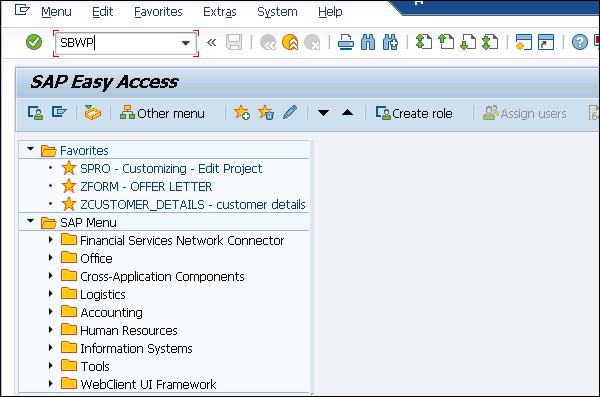
Note that the screen for starting SAP workflows has two parts - You have all the workflows for which you have possible agents defined on the left-hand side and on the right side you can see the details of the workflow selected.
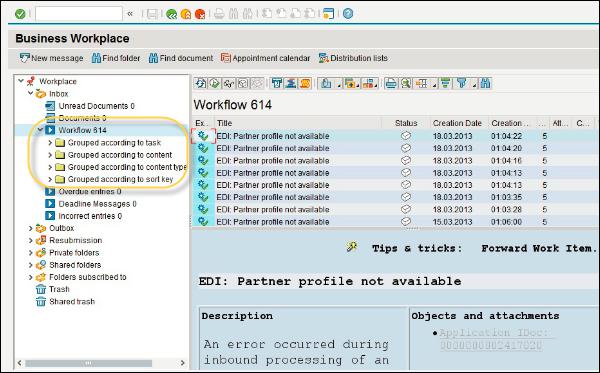
To start a workflow, you need to select the workflow and then click the  icon on the left screen area or the Start function on the right screen area.
icon on the left screen area or the Start function on the right screen area.
When you start a workflow, you can also add information such as notes, deadlines or attachments. You have the following tab pages −
Properties
In this tab, you can define the priority of the workflow. You also have an option to set a flag - “Create flag for started workflow in inbox”. This option gets a work item in your inbox when you start workflow manually.
Note, that this flag is deleted automatically when the workflow is terminated.
Page Note At Start
The note that you create here is added to the workflow as an attachment.
Page 0 Attachments
You can use this to create, display, import, and delete attachments.
To use the function Start Workflow, you have to navigate to Office → Start Workflow.
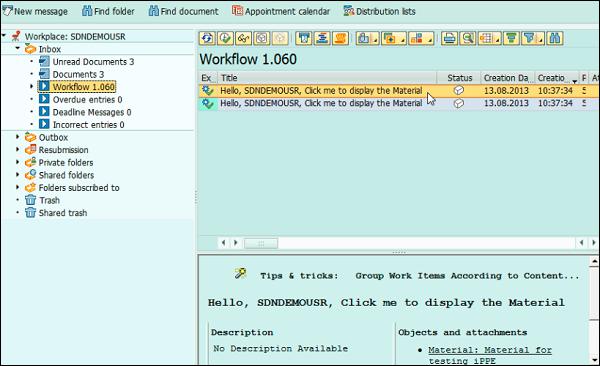
You can also navigate to Tools → Business Workflow → Development → Runtime Tools - > Start Workflow.
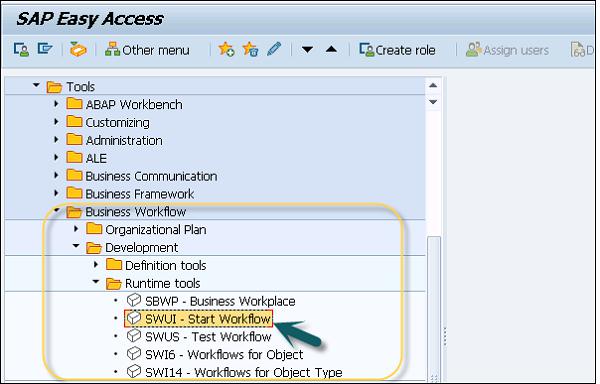
Start Conditions for Workflows
You can also add an additional condition at the start of a Workflow. This can be defined for workflows started by the triggering of an event. When you set the start condition, this means that the start of a workflow not only depends on the event but also on this additional condition.
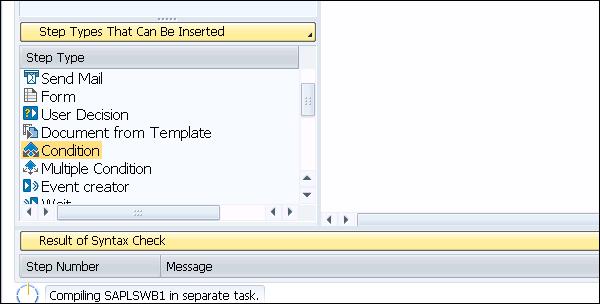
You have the following selection criteria available for selecting a particular workflow −
Start Condition
Using this you can perform a search for the name of a particular start condition defined for a workflow.
Business Object
This option is used to perform a search for workflows with start conditions using a particular object type.
Event
In this option you have all the events for the chosen object type, that are linked with workflows as triggering events are available for selection.
Workflow
This is used to perform a direct search for workflows with start conditions.


